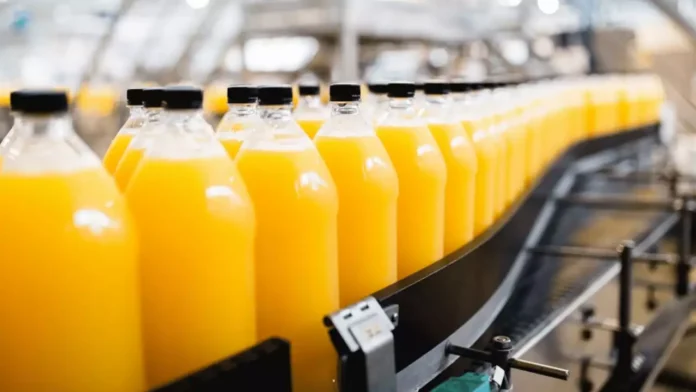Indications from an industry survey suggest that food and beverage manufacturers in the UK are gaining confidence in their future prospects.
As per the most recent State of the Industry Report from the UK trade body, The Food and Drink Federation (FDF), respondents recorded a “net confidence score” of 6% in the third quarter. This marked the first entry into positive territory since the second quarter of 2021.
The FDF reported that the “outlook confidence score” for the fourth quarter of the year stands at 16%, indicating that businesses are predominantly optimistic and anticipate a period of stability. Over half of the respondents expressed the belief that conditions would “remain the same” during this quarter.
The federation stated that 41% of businesses aimed to increase their capital expenditures in the coming 12 months, aligning with the 41% intending to sustain their current spending levels. Meanwhile, 18% anticipated a decline in capital expenditures.
Over the last two years, there has been a notable decline in investment in food and drink production in the UK.
According to data from the Office for National Statistics, food and drink business investment saw a 36% decrease in the first half of 2023 compared to the same period in 2019. Additionally, it was 16% lower than the figures reported in the first half of 2016.
In contrast, investment in various other business sectors in the UK increased by 6% in the first half of this year when compared to the same period in 2019, and by 7% compared to the corresponding period in 2016.
More than 80% of manufacturers indicated that they were focusing on innovation to stay competitive in a challenging market.
This trend coincides with ongoing changes in UK consumer behavior, as 73% of businesses observed an increasing demand for more affordable products attributed to the rising cost of living.
During November, the national Competition and Markets Authority censured the grocery sector for exacerbating food and drink inflation. The authority asserted that in specific product areas, 75% of manufacturers had raised prices at a pace surpassing their costs.
While there was a 1.2% year-on-year increase in food manufacturing growth in the third quarter of 2023, the findings from the FDF indicate that certain sector areas have experienced setbacks.
The dairy sector experienced the most significant yearly contraction, with a decline of -4.5%. Following closely were fish, fruit, and vegetables, with a decrease of -4.3%. The grain mill and starches sector saw a modest decline of -1.1%, while the meat industry showed a slight increase of 0.4%.
The growth in non-alcoholic drink production declined by -4.1% in comparison to the third quarter of 2022 and registered a further decrease of -5.8% when compared to the second quarter of the current year.
The Food and Drink Federation (FDF) anticipates a 3.9% rise in production costs and a 2.7% increase in prices in the coming year.
Several factors may contribute to cost increases in the near future. These include the varied effects of weather conditions, reduced utilization of fertilizers, elevated energy prices, ongoing conflicts in Ukraine and the Middle East, and upcoming regulatory changes.
Approximately 70% of companies expressed unease regarding upcoming packaging regulations, with 65% stating concerns related to carbon footprint and achieving net-zero targets.
Thirty-nine percent of respondents indicated apprehension regarding HFSS regulations and the Windsor Framework.
Considering these apprehensions within the industry, the FDF has called for “appropriate and efficient regulations” to enhance the business environment and prevent the unnecessary escalation of costs.
Commenting on the findings, Balwinder Dhoot, director of sustainability and growth at the FDF, said, “With grocery volumes declining, manufacturers prioritising new product innovation is a way to maintain competitiveness and drive growth. The rise in confidence for the food and drink industry is a sign that market conditions have stabilised. However, there are still huge challenges that face the sector.”
Dhoot urged the UK government to endorse policies that foster increased investment in the sector, emphasizing its crucial role in building a sustainable and resilient food supply chain that supports growth and is essential for a robust economy.
He added, “We saw some positive signals in the Autumn Statement and welcomed the announcement on full expensing, but any benefits will be more than undone by planned regulation that will hit our sector in the coming year.”





